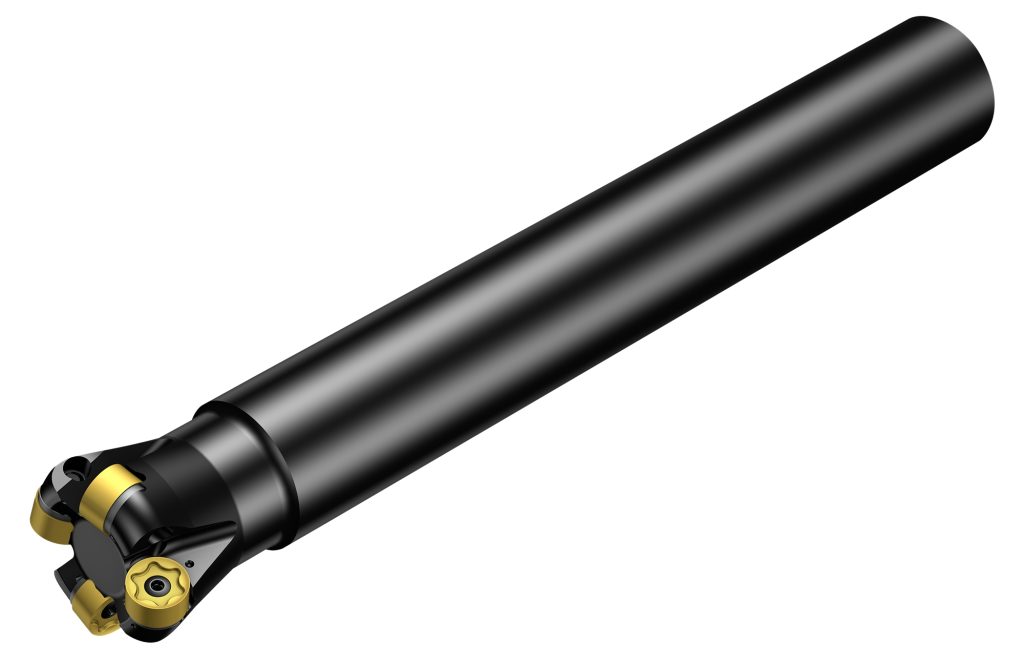CoroMill MR80
CoroMill MR80
The CoroMill MR80 assortment offers cylindrical and arbor cutter bodies, with diameters from 32 to 100 mm, 3 to 12 cutting teeth and even pitch and shim protection. All cutter bodies feature internal coolant supply. The double-sided E-L50 inserts offer true and easy indexing (6 + 6), with a 3 mm recommended depth of cut.

Cutting tool specialist Sandvik Coromant has launched a new milling concept — CoroMill® MR80 — primarily designed for challenging roughing operations in a wide range of face and profile milling applications in steel and stainless steel.
CoroMill MR80 is a double-sided round insert concept with a higher number of inserts compared to regular round insert cutters. It is ideally suited to low depth of cut — up to 3 mm — in face milling and profile milling applications in both steel and stainless steel.
Originally designed for machining cast stainless components such as turbochargers and exhaust manifolds in the automotive sector, this product has been further developed to cater to steel milling applications, which require the security of a round cutting edge — such as the die and mold segment. As a result, CoroMill MR80 is an extremely capable and versatile milling concept that offers both higher productivity and economical machining in a wide range of operations, with no compromise on security.
"The round cutting edge is considered to be the most secure edge for challenging materials as well as tough cutting conditions," says Sangram Dash, global product application specialist for indexable milling tools at Sandvik Coromant. "Furthermore, the shim offers additional security for the cutter body, protecting against coining deformation and machining accidents, while also securing the insert in the tip seat by restricting micro-movements during cutting."
An economical solution, CoroMill MR80 features double-sided inserts with 12 indexing possibilities when operated within a 3 mm depth of cut. "That means more parts for each set of inserts," says Dash. A higher number of inserts on a cutter body also enables a higher table feed and increased productivity. On top of that, the overall security and reliability mean less damage to the cutter body and inserts which, ultimately, helps to cut costs.
Thanks to its lightweight cutting geometry, it is also possible to use CoroMill MR80 as a problem solver in difficult machining situations, even with long overhangs.
"Frequently, due to their intricate shapes, automotive cast stainless components are mounted on a fixture that may not be suitable for higher cutting loads," says Dash. "And often, in die and mold applications, the cutter must go deep into the mold cavity, mounted on a long adaptor. In both cases, the cutting forces must be limited so that vibration can be avoided. Although CoroMill MR80 is a double-sided negative concept, it works with fairly low cutting forces and is a suitable solution for such applications."
The CoroMill MR80 assortment offers cylindrical and arbor cutter bodies, with diameters from 32 to 100 mm, 3 to 12 cutting teeth and even pitch and shim protection. All cutter bodies feature internal coolant supply. The double-sided E-L50 inserts offer true and easy indexing (6 + 6), with a 3 mm recommended depth of cut.





